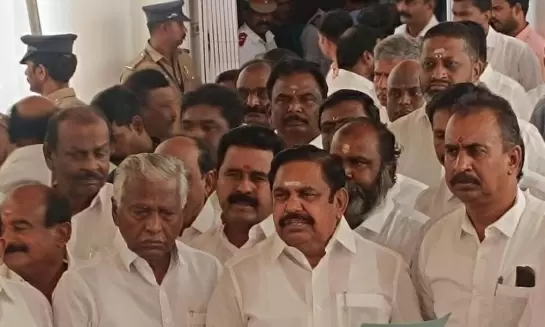UNESCAP suggests removal of tariffs on essential medical supplies
03-April-2020
As the world reels under the scourge of coronavirus pandemic, a report by the United Nations Economic and Social Commission for Asia and the Pacific (UNESCAP) says that countries should remove tariffs and unnecessary non-tariff measures on the import of essential medicines, medical equipment and related inputs.
In a report on the impact of COVID-19, UNESCAP cited the example of Thailand which has recently removed an excise tax on medicinal alcohol for use in hand sanitisers.
Some countries in the region have already scrutinized their inbound trade regulations on health products, it said.
"Governments in the region and beyond should urgently review existing trade regulations, both tariff and non-tariff, to ensure timely access to affordable and trustworthy medicinal and related products.
Removing trade impediments for medicinal products could be an immediate low-hanging fruit for governments.
It also said that knee-jerk reaction in many countries has been to limit the exports of key medical supplies, most notably medical face masks.
Since the beginning of 2020, many governments have taken steps to ban or limit the export of medical equipment and medicines. The key argument has always been that countries have to prioritise the welfare of their citizens, the report said.
"While understandable, such measures deny the most vulnerable countries access to vital supplies to fight the pandemic. It is recommended for countries to realistically assess their critical need of supplies and work collaboratively to meet the needs of those in need and those without productive capacity," it said.
The pandemic has also shown that uninhibited spread in one region has a very real impact on others, it added.
It also suggested the establishment of a sub-regional or regional public health emergency fund.
"To contain COVID-19, cure infected people and develop vaccines require financial resources. Not all countries in the region can achieve this by themselves. A public health emergency fund can help mobilize financial resources at the regional level and provide targeted support for countries that are most affected by the virus."
It noted that India proposed the establishment of a COVID-19 emergency fund under South Asian Association for Regional Cooperation (SAARC) and offered an initial contribution of $10 million.
The United Nations, including ESCAP, could be a suitable platform to manage an emergency fund, to bring stakeholders together, including member states, regional intergovernmental organisations, multilateral development banks, the private sector, philanthropies, and civil society, it said.
It also said that the crisis has shown the need for aex-ante emergency preparedness' to minimise economic impacts in future.
The report said that ESCAP (2019) estimated that the region needs to invest an additional $880 million annually by 2030 in emergency preparedness, risk management and response, as part of overall strengthening of the health system. Such affordable investment can improve effectiveness in dealing with such crises to contain economic losses and, more importantly, save human lives, it said.
"More generally, developing Asia-Pacific countries should invest an annual additional $158 billion by 2030 to provide universal health coverage. More than two thirds of this additional investment would be spent on health systems, mainly infrastructure and workforce and to a lesser extent, supply chain and information systems." IANS
Digital Payments Surge in India: 18,120 Crore Transactions in FY24-25
Weather Dept Predicts Heavy Rains In Several TN Districts
Chitra Subramaniam’s Book Boforsgate Exposes Arms Trade, Corruption, and Political Intrigue
Israeli Tourist Gang-Rape Case: Third Accused Nabbed in Chennai
Indian Startup Founder Salaries Drop 25% Amid Funding Winter









